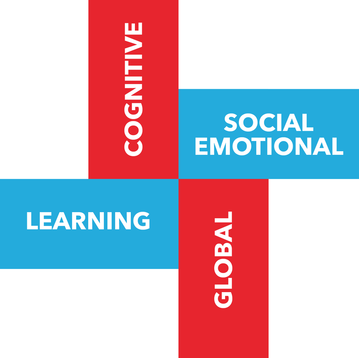4 ventajas de la educación bilingüe
CognitiveBecause of language switching, the child is able to access multiple parts of the brain at once. This heightens cognitive brain function, logic, and reason. Studies show that a bilingual education helps students solve math concepts and word problems more easily. Focusing, remembering, and decision making skills are also increased during the dual-language learning process. It can even help delay the onset of dementia and Alzheimer’s disease.
|
Social emotionalStudies show that bilingual children are more likely to have better self-control and self-esteem, as well as strong ties with their family, culture, and community. This triggers the motivation to learn which in turn allows them the opportunity to succeed in developing social skills in both languages. Bilingual students are also generally more confident because they have overcome many obstacles, which helps to develop a healthy more independent and innovative mindset.
|
LearningWhen a bilingual environment is presented to a child from an early age, neural pathways are created that will allow them to produce high levels of critical and creative thinking skills which enables them to focus, listen, and search for a variety of approaches when learning something new. Bilingual children have a heightened ability to filter out irrelevant information, think more analytically, focus on more than one task as a time, and effectively problem solve using abstract thought, thus attaining higher grades and higher test scores on average.
|
GlobalKnowing more than one language is one of the most important assets to have in today’s job market. There are more choices in content and resources for studying and literature available to bilingual students, therefore expanding the opportunity for additional knowledge and real life experiences such as traveling, studying, and working abroad. Bilingual education is ultimately a passport to becoming a global citizen in this world.
|

